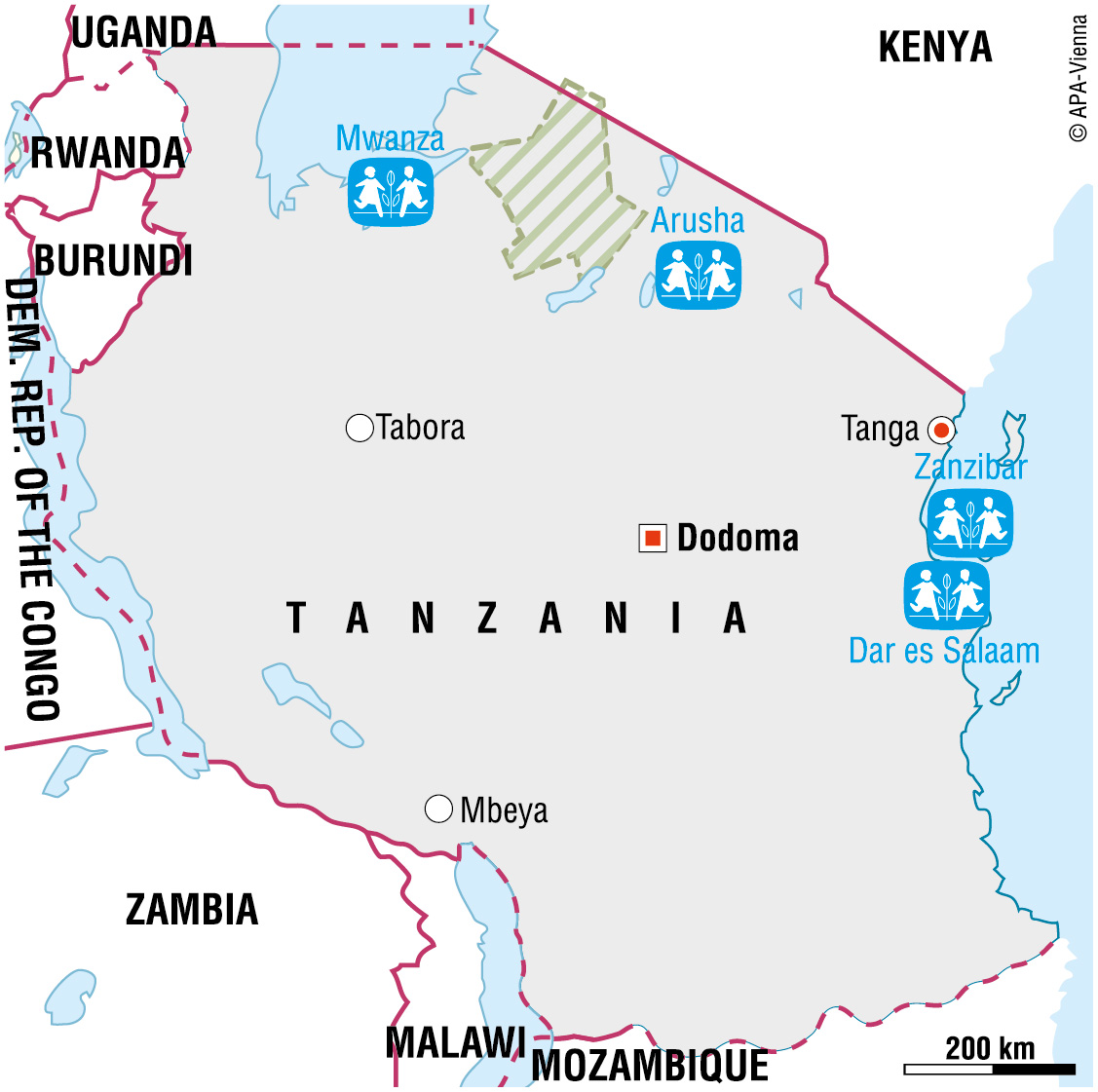
Vi er i Tanzania
Most people live off farming
The United Republic of Tanzania is a country situated in Eastern Africa. The 26 regions that Tanzania is made up of include those of the autonomous region of Zanzibar. Tourism has come to play an increasingly vital role in Tanzania’s economy. However, it is still mainly based on the agricultural sector where more than 80 per cent of the work force is employed.
Tanzania has a total population of 49 million and its capital city is Dodoma. The official and most widely spoken language is Swahili.
Widespread poverty remains a challenge
The UN Human Development Report shows that Tanzania has made marginal steps forward in terms of human development, ranking 152nd out of 187 countries in the Human Development Index. However, Tanzania remains one of the poorest nations in the world. Over 28 per cent of the country's population lives in poverty. Although the economic growth rate is one of the highest in Sub-Saharan Africa, millions of Tanzanians find themselves caught on the bottom steps of the socio-economic ladder.
Only a small minority has been able to benefit from the country’s recent upswing. Growth has been neither broad based nor great enough to effectively tackle high poverty levels in Tanzania. Particularly in rural areas, poverty is a widespread and acute problem. Families who live in arid or semi-arid regions are facing unimaginable hardships in their daily lives.
35 per cent of the country’s population are chronically undernourished. For rural areas, this figure is even higher. Thousands of people live in mud huts or shacks where regular access to potable water is often nothing but wishful thinking.
Africa accounts for only one tenth of the global population but for nine out of ten new cases of HIV infections. At 5.6 per cent, Tanzania is marked by a comparatively high HIV prevalence rate. Approximately 1,400,000 Tanzanians are living with HIV/AIDS and 250,000 of them are children under 14 years of age. The HIV/AIDS pandemic is therefore considered one of Tanzania’s most striking health problems. It deeply hinders socio-economic development in the country. The disease affects the food security of thousands of families, particularly in rural settings. When the head of the family falls ill, other family members – often young children – have to engage in labour activities so that they can help their family survive.
Illiteracy is more common in women than in men and remains especially persistent in rural areas where school infrastructure is either poor or non-existent. Overall, nearly 30 per cent of Tanzanians do not know how to read and write in any language.
Children need support
At 38 per 1,000 live births, the infant mortality rate for Tanzania is relatively high. Most child deaths are caused by HIV/AIDS, malaria, diarrhoea, pneumonia, malnutrition and complications associated with low birth weight. Only around half of all births are attended by skilled medical staff.
In Tanzania, an estimated 1,300,000 children are orphans due to HIV. They have lost either one or both of their parents because of the disease. Due to AIDS, the number of child-headed households in Tanzania has increased significantly in recent years. Growing up without a family or in a dysfunctional family environment often has serious implications on a child’s mental and physical development. Many orphaned children experience neglect and discrimination. Children who grow up without parental care often do not attend school.
The school enrolment ratio in Tanzania has slightly improved over recent years. However, government funding of primary and secondary education is relatively low when compared to many other countries in the region. As education is often seen as the key element for the economic self-sufficiency of a child in the future, raising school enrolment and attendance figures has now become a priority of the Tanzanian government. School drop-out rates are often high due to financial constraints. Many children have to work besides school in order to increase their family’s household income.
SOS Children's Villages in Tanzania
As for now, there are four SOS Children’s Villages in Tanzania. They include SOS Youth Programmes, a number of SOS Kindergartens, SOS Hermann Gmeiner Schools, SOS Social Centres and two SOS Medical Centres.
In cooperation with local agencies, our organisation runs family strengthening programmes to allow families to effectively care for their children. The support we provide varies according to the local needs but includes: food packages, basic vocational training, income generating projects, and legal advice and assistance.
When children can no longer stay with their families, they are cared for by their SOS mothers in one of the SOS families.
.jpg?width=800)
_1.jpg?width=800)